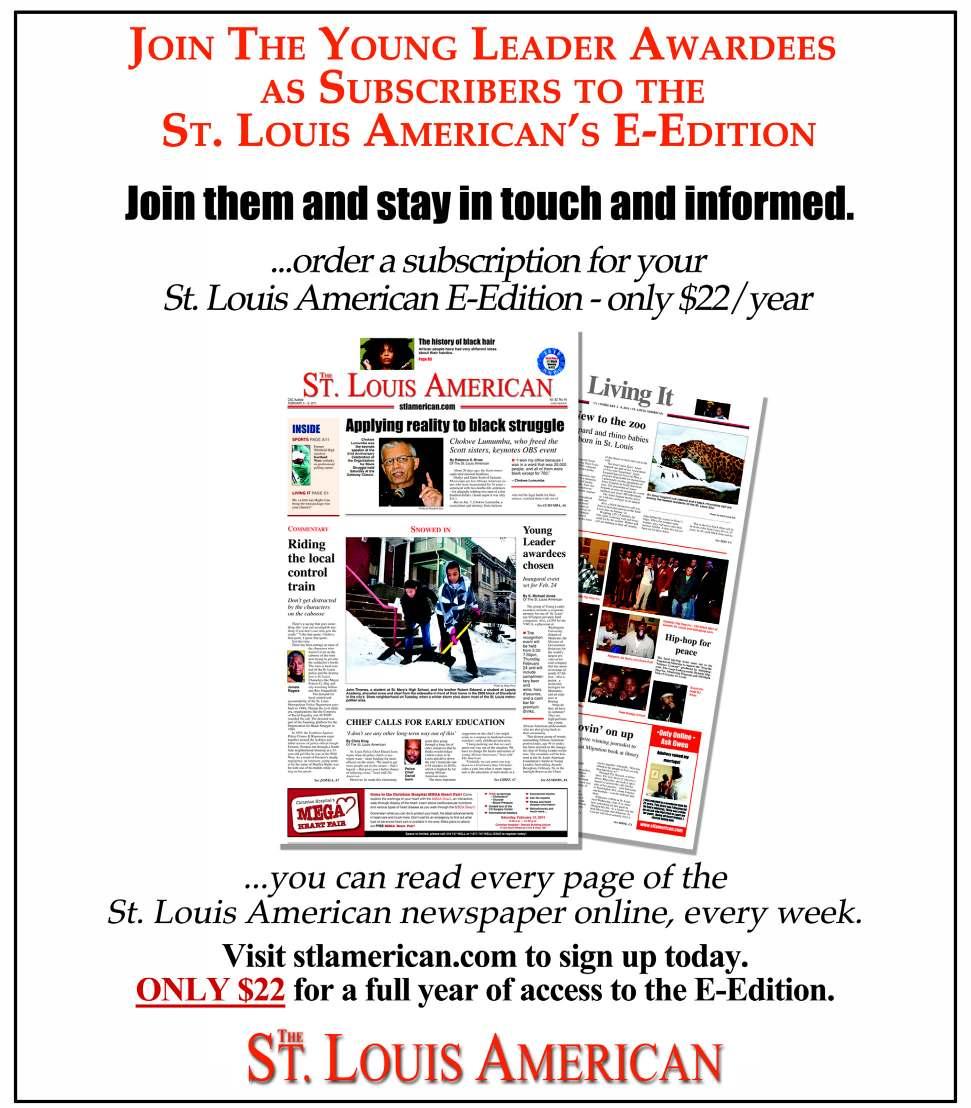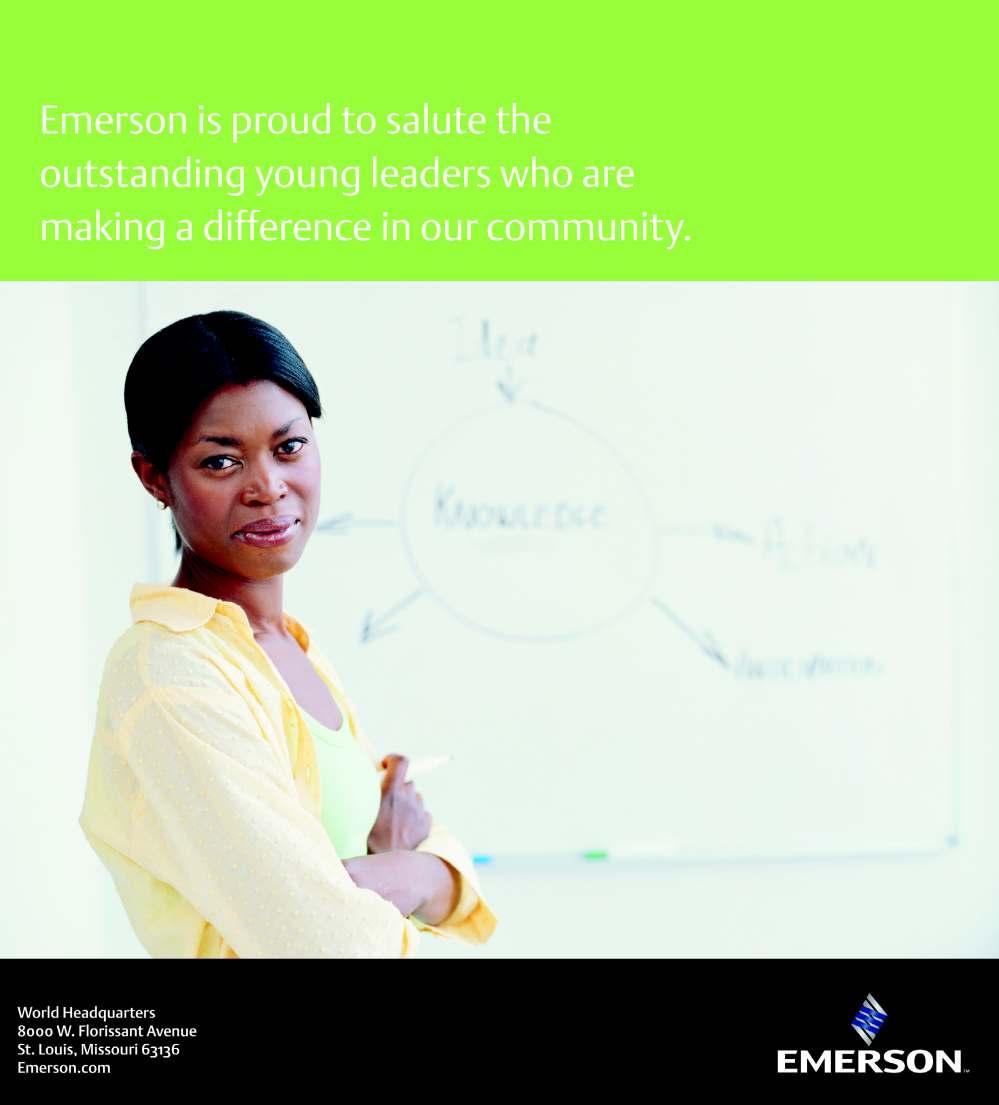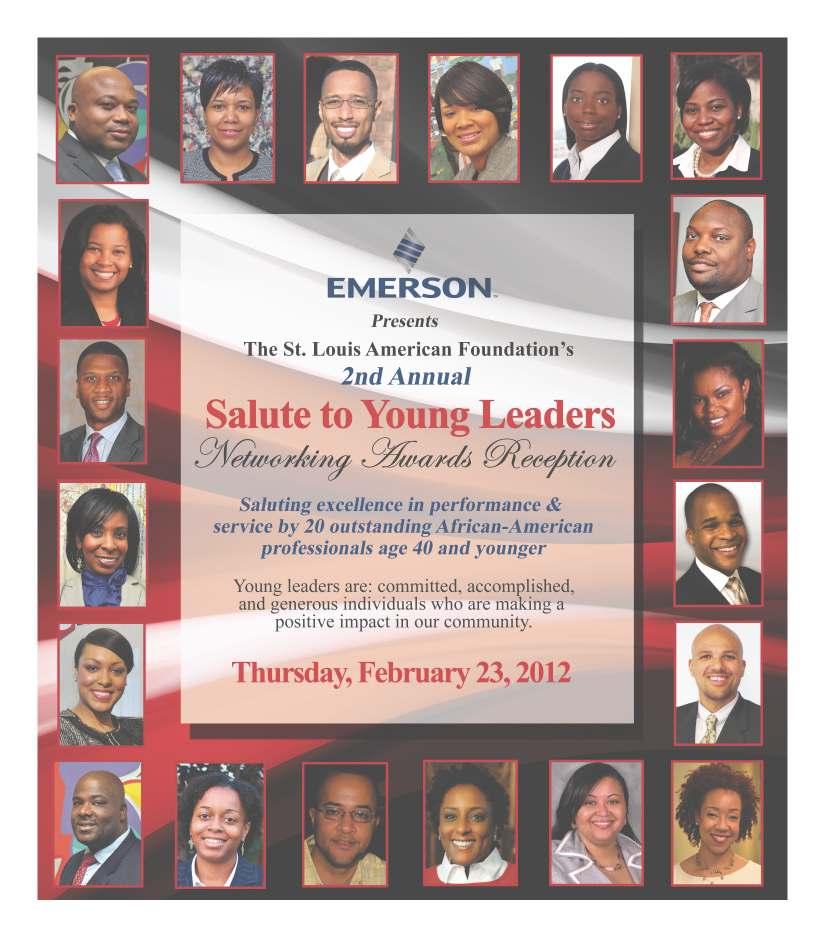




We want to thank everyone for the wonderful response we’ve received to the St. Louis American Foundation’s second annual Salute to Young Leaders recognition event. More than 110 nominations of accomplished African-American professionals under the age of 40, representing diverse professions in the private, public and non-profit sectors, were received. Acommittee of their peers (seven local African-American professionals, under 40) selected the 20 awardees.

Donald M.Suggs President, St.Louis American Foundation
Although they are under age 40, this group of young leaders has already demonstrated a deep commitment to making a positive impact in our community by helping to make our community a better place. They are highly-motivated and aspirational and are a vital force for change in the St. Louis region. We are celebrating both their high-performance professional work and their involvement in activities that make a difference in the community. It is an honor to highlight each one of them.
One of our goals for this event is to recognize, broadly, outstanding Young Leaders individually so that future generations can see others like themselves performing at a high level.
We would also like to applaud the employers of these Young Leaders, who are demonstrating their commitment and support for workforce diversity and inclusion as a benefit to their organization and the entire region. While we realize the region has a long way to go to reach optimal levels of diversity and inclusion, and that the goals will never be completely realized, we feel it is important to share positive information about individuals, businesses and other organizations who do, in fact, accept and act on the belief that diversity truly is a competitive business and organizational advantage.
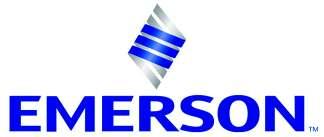
Emerson is proud to support scholarship programs in the community that encourage young men and women to continue to complete their education and that promote and develop leadership in and for St.Louis and the region.
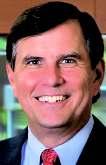
For example, for many years Emerson has committed to a scholarship program through St. Louis Community College—initially to drive minority participation in Engineering at Florissant Valley and today on all four campuses that is aimed at broader business and management development. Also, Emerson is supporting the newly created Opportunity Scholars Program at the University of Missouri-St. Louis, which provides a unique opportunity for St. Louis-area high school students to receive an all-inclusive, four-year scholarship and receive an internship at a local corporation.
The UMSLprogram focuses on academically gifted first-generation college students and/or students who are underrepresented in the work force from certain academic fields—primarily, but not limited to, the sciences, technology, engineering, and mathematics. Because many of our highachieving students leave St. Louis to pursue college elsewhere and do not return, Emerson believes it is important to support the quality and resourcefulness of our education system at all levels if our communities are to grow and prosper. The Opportunity Scholars program will enable us to retain some of the best and brightest students and prepare them to be future leaders for the St. Louis region.
UMSLplans to issue 10 scholarships per year, with the first cohort beginning in the fall of 2011.
As mentioned, Emerson has been a strong supporter of St. Louis Community College, we have provided minority engineering scholarships, helped fund the Advanced Manufacturing Center, and also outfitted the Process Laboratory in the Center. The Minority Engineering Scholarships Program has been in place for over 20 years, and had grown from its beginning to where Emerson provided scholarship to nearly two dozen minority students, all focused on engineering/manufacturing. Some of these students, after completing their coursework, continued their pursuit of a four-year engineering degree at Rolla.
Emerson has changed, so has the marketplace, and we believe there is growing opportunity not just for engineers but also for business majors. Today, that program has evolved beyond just engineering to include business in areas of concentration including accounting, human resources, and information technology.
The mix of disciplines is now balanced toward business, and for those who qualify after receiving their Associates Degree, they can be eligible for scholarships through the UMSLOpportunity Scholars Program. Those eligible engineering graduates can still get scholarships to complete their schooling at Rolla.
Through these and the many other initiatives, we can build and retain St. Louis leaders of tomorrow.





Inc.
Born: Brooklyn,N.Y.
Education:
High School: Maplewood Richmond Heights
College & Degree(s):
Saint Louis University, B.S.in Accounting
Washington University in St.Louis,Executive MBA
Member of the following:
• RBC Young Professionals
• United Way Young Professionals
• United Way African American Leadership Society
• VP MRH Board
I am responsible for protecting the company from accidental and catastrophic risks. Major duties include managing domestic and international insurance programs, risk financing, foreign currency hedging, and performing enterprise risk management assessments.
First of all, you were nominated by your pastor. How does that make you feel?
ing a positive impact in our St. Louis community….and has made himself available to visit classrooms to encourage young people to further their education, to believe in themselves and to strive to achieve their personal goals.
What is a typical day at the office for you?
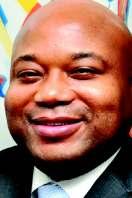
Being a spiritual person, I was honored to be nominated by my pastor and truly appreciate my church family at First Church of God, Richmond Heights, MO. (According to his pastor, Agard “displays the compoassion, generosity, and commitment which his Christian upbringing has promoted.” He is a “great role model who is mak-
There are no typical days for me at Solutia, having global responsibilities for a company operating across 5 continents and having over 75% of revenue coming outside of the U.S. Each day presents new challenges as our company grows in an everevolving world.
After receiving a bachelors degree from Saint Louis University, you went back to school and received an MBA from Washington University’s Olin School of Business. How has your training prepared you for your current career?
Receiving an MBAfrom the highly ranked Olin School of Business provided me with advanced business strategies and problem-solving techniques. In addition to broadening my knowl-
edge for my current role, I believe this MBAhas prepared me for future roles with increasing responsibility.
Physical fitness seems to be an integral part of your life. How do you instill that sense of mind, spirit, body in your children and the community?
Coaching basketball for the last 5 years has allowed me to promote physical fitness and help children develop leadership qualities and improve self esteem.
What do you enjoy most about your work?
The variety and the quality of people I have an opportunity to work with, from the board of directors to manufacturing site personnel to insurance brokers and underwriters to business functional department leaders, risk management interfaces with every level of the organization and maintains several external business relationships.
(Editor’s note: According to Agard’s pastor, in January of 2010 he saved the life of one of his colleagues by performing CPR and received the American Red Cross Lifesaver Award Certificate of Recognition).
I establish third party broker and correspondent mortgage originations relationships and manage their portfolio for credit and fraud risk exposure.
What are some of the employee groups you’ve been a member of at Citi, and what are their areas of concentration?
Co-chair of Citi’s Financial Assets and Capability Committee, responsible for guiding the strategic deployment of resources to organizations that incorporate financial lessons in the community to help change lives. Citi’s Green Team Committee, employees that guide initiatives to create awareness of Responsible Consumption in our everyday lives. 2008 co-chair of Citi’s African Heritage Network- an employee network of nearly 200 employees that engages
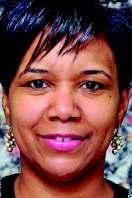
employees with common experiences in professional development, volunteering, and networking activities to enhance their professional growth. Under my leadership and in conjunction with the business, the network established a quarterly newsletter and successfully completed community projects with Habitat for Humanity, Mathews Dickey Boys and Girls Club “The Sky is the Limit” program, and helped to raise over $12k for the United Negro College Fund. I am also a member of Citi’s Women’s and Hispanic networks focused on the same priorities
Among your many accolades you’ve received at Citi, you have received Citi’s President’s Award for three consecutive years for volunteering more than 100 hours each year in the St. Louis region. Who/what instilled your sense of volunteerism?
My sense of responsibility to others came from my mother. I grew up in the “Hope House”. If you had a glimmer of hope, my mother would let you stay at our house. She taught me and my six siblings to help each other. She says “Your family is all you got.” In our world,
family is community - the two are synonymous so we must help other.
How do you measure success?
Success is giving your best and leaving nothing to be desired. When you give the world your very best, you have done your job.
How have your associations with professional organizations like the Fellows Program, the RBC Young Professionals and the United Way’s African-American Leadership Giving Society helped you grow professionally and personal?
As a member of the RBC YPN, I receive exclusive opportunities to network with CEO’s from 100 of our region’s mid-cap companies. The network drives inclusion and connects me with the leaders who directly impact the strategic direction of our businesses and communities.
Why do you feel you’ve been so successful at such a young age?
My heart guides my values, my values guide my talents, and my talents guide my path in all that I do. At an early age, I decided to stand up for what I believe, work hard, have fun, and love people. Balance is a necessity not an option. My motto is “Work hard, play harder.”
PNC Bank
Born: St.Louis,MO
Education:
High School: Rosati Kain
College & Degree(s): University of Missouri,BA, Political Science
Member of the following: • PNC Bank African American Affinity Group
I assist our 80+ retail branches throughout Missouri and Central Illinois with creating a model around winning in their marketplace, with an overall goal to be recognized as the #1 bank in their neighborhood through community outreach.
You’ve received recognition at PNC for your employee engagement and workplace business development. Why is that area so important for you?
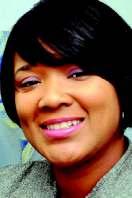
Employee engagement is key when creating a vision and delivering on that vision. One of PNC Bank’s core values is teamwork; without teamwork and team
engagement, success is impossible. If I have a team which totally disagrees with our overall mission, it will fail. Therefore, it takes a special core group of people willing to perform at a higher standard in order to live up to our commitment. Every team member has a special role within the branch and contributes wholeheartedly because they understand the goal, support the goal, and strive to exceed that goal.
You’re a “community liaison” for PNC. How do you ensure the general public that you are there to “help” them, as opposed to looking like you’re selling them something?
When I think of the word “liaison,” I believe it to be the final piece to make the puzzle work. I become the go-between within different business departments, external partners, and so forth, assuring that the community’s needs have been met. Rather than focus on the sale of a bank’s product, I focus on the service and delivering quality. I
believe my genuine passion and commitment to the community shine through because it is natural, it is no act; it is engrained in me.
You are currently leading a faithbased initiative, providing financial education to local churches. What are your hopes for this special initiative? I lead a faith-based initiative for PNC Bank in which we are calling on all churches, not-for-profits, and schools to join forces to offer financial education in an effort to gain financial freedom. Some of the activities we focus on are basics of banking, budgeting, credit repair, business banking, retirement planning, and so forth. The overall mission is to utilize existing audiences to get a positive message out and equip our future generations with key knowledge that we may not have had as children or young adults. Most importantly, we offer the classes and workshops at no charge and invite all to attend. Knowledge is power, and it is up to us to strengthen our communities through offering education. My hope is to see the number of unbanked and underbanked families decrease for the St Louis and Illinois markets.
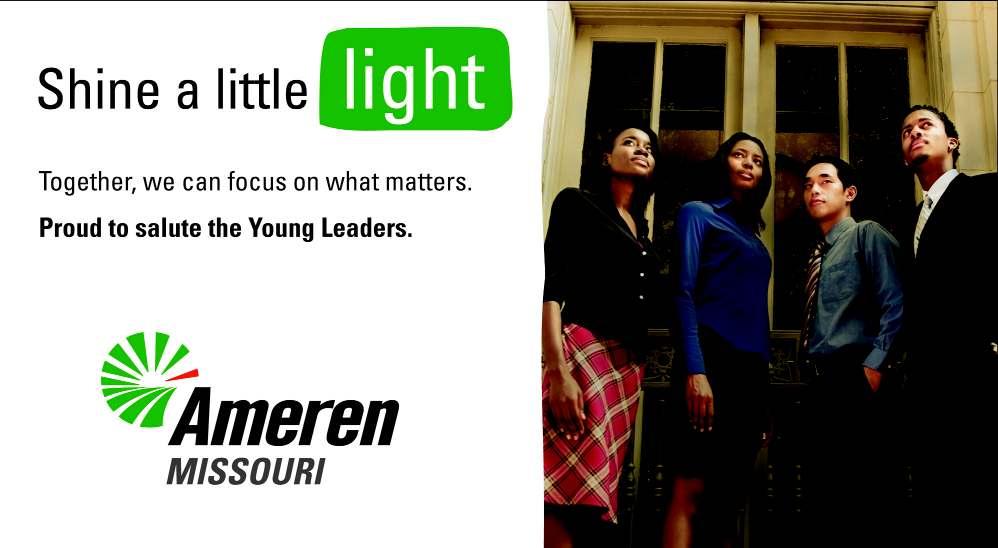
Born: Yakima,WA
Education:
High School: A.C.Davis High School
College & Degree(s): Gonzaga University,BA Washington State University,MA University of MissouriColumbia,PhD
I share knowledge with youth, and I hope that knowledge leads them to wisdom. I am an educator who basks in the glory of learning. Each day, I am blessed with the opportunity to tell young people (and the young at heart) about their past.
I spend nearly all my time and energy researching and sharing information about the contributions of African Americans
What are some of the challenges to teaching history, and in particular African-American history to college students, in 2012?
One of the major challenges to teaching history is the myth that history is boring. I tell students that those who are bored with history have little imagination. History is for those who are nosy and those who don’t mind telling other people’s business. I get to teach young people about grand figures like Marcus Garvey and Martin Luther King, Jr. When learners discover that King pledged a fraternity or that Garvey liter-
ally fell on his face during his first public speech, they understand that these figures were not saints but rather mere men who, in spite of their shortcomings and obstacles, seized opportunities to help others. In that way, students can identify with those exceptional African Americans.

Transversely, what are some of the rewards to teaching history, and in particular AfricanAmerican history to college students, in 2012?
The largest reward of teaching history is that I know that those who learn the story of black people in the United States with their heads and hearts can never go back to ignorance. To be a good citizen of these United States, one has to learn the history of all the nation’s people. By teaching college students and others about the contributions of African Americans, I’m teaching them to be better citizens. Finally, in a most selfish way, by teaching history, I know that I have played a part in the lineage of knowledge and wisdom that has been passed down for generations
Education:
Louis,IL
High School: Rosati-Kain
College & Degree(s): Northwestern University –BA,Psychology Washington University in St.Louis,School of Law, Juris Doctor
I’m a business attorney with a particular focus on intellectual property including advertising, sweepstakes, and social media law. In addition to my intellectual property practice, I often assist our real estate and higher education clients as well. I do a substantial amount of work for Carl Karcher Enterprises, Inc., the parent company for the Carl’s Jr. and Hardee’s quick-service restaurant chains, and am one of the attorneys responsible for legal review of the company’s popular – and entertaining –advertising and sweepstakes campaigns as well as drafting and negotiation of its endorsement and sponsorship agreements.
made in my life. My parents, grandparents, aunts, and uncles all made significant sacrifices to ensure that I had access to the best educational opportunities and life experiences. I was raised with a clear understanding of the importance of hard work and focus on one’s education.
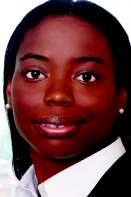
What has led you to so much success professionally, already at age 29?
I believe that my family, especially my mother and grandmother, is responsible for all of the achievements I have
In an ever-changing society with more distractions than ever, how do you keep your students energized and ontask?
My classroom is meant to be a sanctuary of learning. I like to think my teaching style features a hybrid of the old and new school. I abhor tardiness, and if someone’s phone rings, I’ll answer it. If students text, I tell them to explain to the people they are texting that we’re fighting ignorance and need to concentrate. I’m a relatively animated person, so hopefully my passion shines through the lessons.
You’ve received many accolades, what do you feel is your greatest professional accomplishment?
I think highly of all the awards I’ve received but I especially appreciate those for which students nominate me. Some of those honors include being selected to do the “Last Lecture” and receiving the SLU student government association’s Faculty Excellence Award. Probably the most meaningful accolade for me, however, is the fact that nearly each week a former student reaches out to me by phone or email. Those calls and messages are some of my highest commendations.
You work with major national companies, including a national theme park, and an entertainment company. Is it as exciting as it sounds?
It is very exciting. On a regular basis I negotiate agreements with sports and television celebrities and professional baseball and hockey teams. I’ve also provided legal consultation for grand openings of thrill rides and worked on some very popular television and radio marketing campaigns. It is exciting to be watching television and see an ad I reviewed, live on the air.
Part of your job is working with social media strategies for these large companies. What’s next on the horizon for social media marketing?
I think social media marketing will become more and more prevalent over the coming years. It is an incredibly efficient (and inexpensive) way for companies to reach their specific target markets
and learn more about those customers’ desires and preferences. I think we will see much more integration of smart phone/GPS-based social media marketing (through applications like Foursquare, in which customers “check in” and announce to their network of friends that they are patronizing a particular business) which allow companies to easily track and reward frequent customers and at the same time attract new customers through the “personal endorsement” that comes from knowing that a friend or colleague frequents the business.
You have a long history of giving back to the community. Why have you taken a special interest in the lives of African-American girls and teens in St. Louis and East St. Louis?
As I was growing up, I was very fortunate to have a strong support system in my home to help me avoid negative influences in the community around me and show me the amazing possibilities for my life if I worked hard and stayed in school. Now that I have completed my education and started to build a life for myself, I find it very rewarding to be able to be a part of the support system for other young African-American women, who may not be fortunate enough to have the financial resources or in-home role models to help them reach their full potential.
Born: Las Vegas,NV
Education: High School: Kirkwood
College & Degree(s): University of MissouriColumbia,BA,International Relations;BS,Business Administration
The Maxwell School of Syracuse University,MA, Public Administration
Member of the following: • RBC Young Professionals
I am responsible for securing leadership gifts for United Way. This requires me to support our cadre of volunteers in developing campaign strategies, executing events and engaging the community.
After working with the government of the District of Columbia, the mayor’s office and other posts in DC government, you chose to return to St. Louis. Why?
so many other great things. So, my family and I were glad to return to the area.
What is a typical day at the office for you?
I am required to interface with the public on a daily basis. Atypical day involves meeting with potential volunteers, planning events, identifying key partnerships, drafting communications for volunteers, organizing meetings and ensuring that we are progressing towards our goals. My job is heavily focused on relationship-building, so it requires me to have an extreme attention to detail, a constant focus on customer service and delivering above and beyond what is expected.

Aline from St. Louis’homegrown hero, Nelly, best summarizes why I returned to St. Louis. I came back to St. Louis because, “I’m from the Lou and I’m proud.” St. Louis is a great city, with lots to explore and a wonderful place to raise a family. While I had some tremendous professional opportunities in DC, there’s truly no place like St. Louis –with the warmth of the people here and
In the current economy, with cutbacks abounding, fundraising is extremely challenging. Why does the United Way of Greater St. Louis continue to be successful year after year? United Way is only successful because of the generosity of the caring people in this community. Year after year people open their hearts to respond to the needs of others and it’s a testament to the true meaning of neighbors helping neighbors.
United Way honors that community trust by efficiently distributing funds and holding our agencies to high quality standards. So, I think that people understand the community need and appreciate the role that United Way plays in helping 1 in 3 people in this region.
You have volunteered with multiple overseas efforts, including teaching computer training in South Africa, organizing a sports camp in Guyana and managing a youth camp in Cambodia. Of all you do, what brings you the greatest satisfaction?
My greatest satisfaction in public service is helping people to reach their full potential. Teaching computer training in South Africa built employment skills that were transferrable to a job. Organizing a sports camp in Guyana taught children character-building skills to succeed in life. Those experiences can last a lifetime and have the potential to develop each individual’s unique gifts and talents. In this way, public service is extremely powerful because while I may be a vehicle to help, ultimately it’s not about me. It’s about helping others grow. And that’s why the United Way mission really resonates with me because we are a vehicle to help those in need to grow and realize their potential.
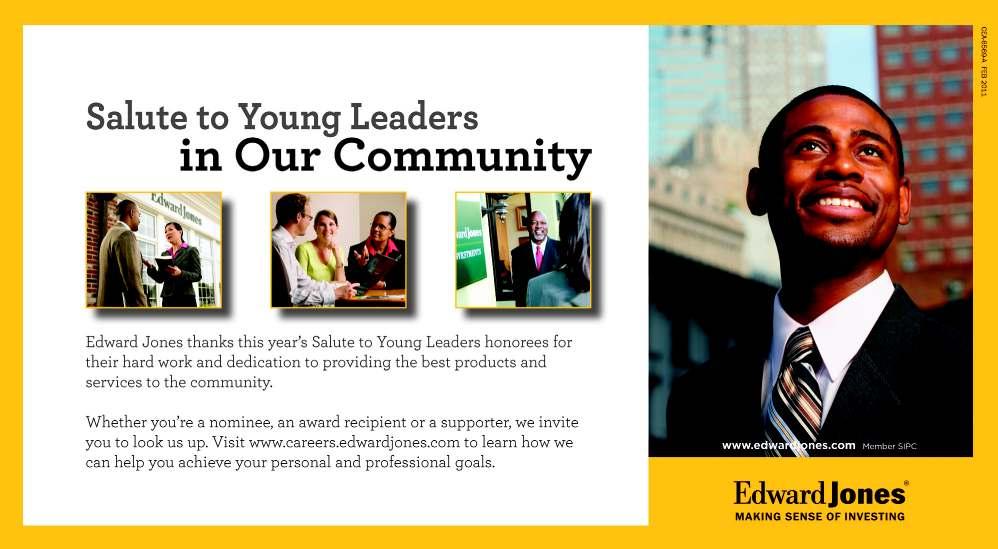
Born: St.Louis,MO
Education:
High School: Hazelwood Central
College & Degree(s):
Fontbonne University,BA, Business Administration
Member of the following:
• Urban League Young Professionals
As President and CEO I am accountable to the Board of Directors to implement the strategic plan and goals of the organization. I accomplish this task by providing the overall direction and administration of health center operations while assuring the center and staff meet the goals and objectives of the mission.
What are the biggest challenges facing non-profit health centers?
Explain how information technology continues to become more and more important to the health care industry?
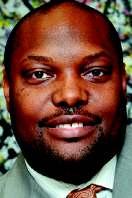
The biggest challenges facing non-profit health centers involve funding. As federal and state government face budget shortfalls, it results in a direct impact to the services we provide. We now face the challenge of doing more with fewer resources.
Today, health care is centered on coordination of care. Patients are treated by a group of providers who likely are not connected beyond caring for the same patient. Information technology solutions such as electronic medical records allow providers to share pertinent information in a timely and efficient manner. Technology also is instrumental in improving the quality of care for patients. Using technology, providers can now every quickly evaluate if a treat protocol is improving outcomes by querying their electronic medical record. Prior to wide-spread EMR adoption, this type of work was done manually.
How do you measure success?
I feel successful when my actions result in a positive impact on the lives of others. One of the reasons I am passionate about working in community health is because my daily tasks make life better for other people.
In 2010, Missouri Governor Jay Nixon appointed you to the inaugural board of Missouri Health Connection (MHC). What is MHC and what does it do?
Missouri Health Connection is creating Missouri’s statewide health information exchange network that will ensure patients, providers, physicians, hospitals and other health care organizations have access to critical medical record information in order to improve patient care and public health.
Among your many success stories is your longtime association with Confluence Academy. In your view, why can schools like Confluence be successful?
Charter schools, such as Confluence, are successful because they have the latitude to try different approaches to providing high quality education. They also have more ability to quickly make changes because of their smaller size. For example, selecting a new math curriculum for 3rd grade may be easier at a charter school compared to a traditional district because the charter school may only have to replace 60 textbooks and provide professional development to three teachers versus several thousands of textbooks and 75 to 100 teachers in the traditional district, which may be cost prohibitive.
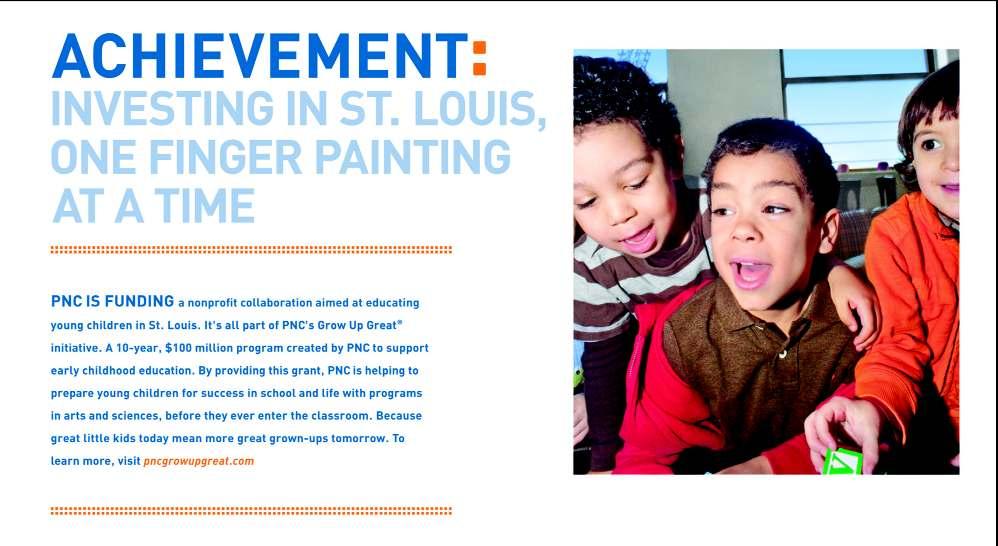
Born: St.Louis,MO
Education: High School: Parkway North
College & Degree(s): Tennessee State University, UM-St.Louis,BSW
Brown School at Washington University, MSW
Member of the following:
• St.Louis Business Diversity Initiative Fellow
Overthepast15years,I have given myselfinservicetotheSt.Louis
Region.Ilead inspirationalleadershipworkshopsforstudents.I coach Chessthroughout thecountry.Iconsult non-profitsandschoolson workingwithat-riskyouth. IcounseljuvenileoffendersinRestorativeJustice. Inaddition,Iemploy youngprofessionalsas internsatImagine Services,mycommunicationscompanyheadquarteredinSt.Louis since 2003, to help them understand the power of sharing stories.
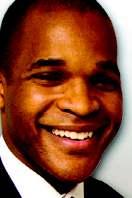
How does what you’ve learned earning your Masters degree in Social Work and Social and Economic Development help you in your professional career? Every day, I help my clients and the students we serve understand the importance of personal connections. There is a
concept we study in Social Work called The Ecological Perspective. In short, it’s the idea that we are all connected to systems. I believe that to understand people best, we must consider what they have experienced in their system. In other words, to understand who I am, you need to know some of my stories. So, we share stories and connect with people.
At age 17 you began volunteering at Walbridge Elementary and the Walnut Park neighborhood. What lessons did you learn from those 8+ years?
I worked with Gary Hayes and some amazing folks in Walnut Park. Those teachers, kids, parents and volunteers taught me everything, but two things in particular. First, a community’s strength is in the people who live there. When you’ve got good people, you’ve got a good community. Secondly, kids (and adults) need to know you care before they care what you know. Once I developed a relationship with the school and the community, then we began to work together to solve problems.
What inspires you?
My wife and son inspire me. Life is tough. My wife, Pamela WestbrooksHodge, makes it happen anyway. She works late and wakes up early every day. She helps everyone who needs it. She does it all and rarely complains. I’m inspired by her dedication and discipline to be her best. My son, Brylan Mason Hodge, is the reason I do what I do. I am trying to make a better world for him to live in. He’s 10 years old and time is ticking away.
How has the St. Louis Business Diversity Initiative’s Fellows Program helped you in your professional life? As a social entrepreneur, my primary interest has been in improving the lives of young people. The St. Louis Business Diversity Initiative’s Fellows Program has given me an opportunity to develop relationships with other professionals who have challenged me to expand my vision and purpose. People like Mark Smith and Jamillah Boyd have challenged me to “develop people.” Now, in addition to enhancing the lives of young people, I help adults develop lives of young people. As a result, we have expanded our ability to reach a wider audience. The program has helped me connect with a group of like-minded people dedicated to developing themselves for service to others.
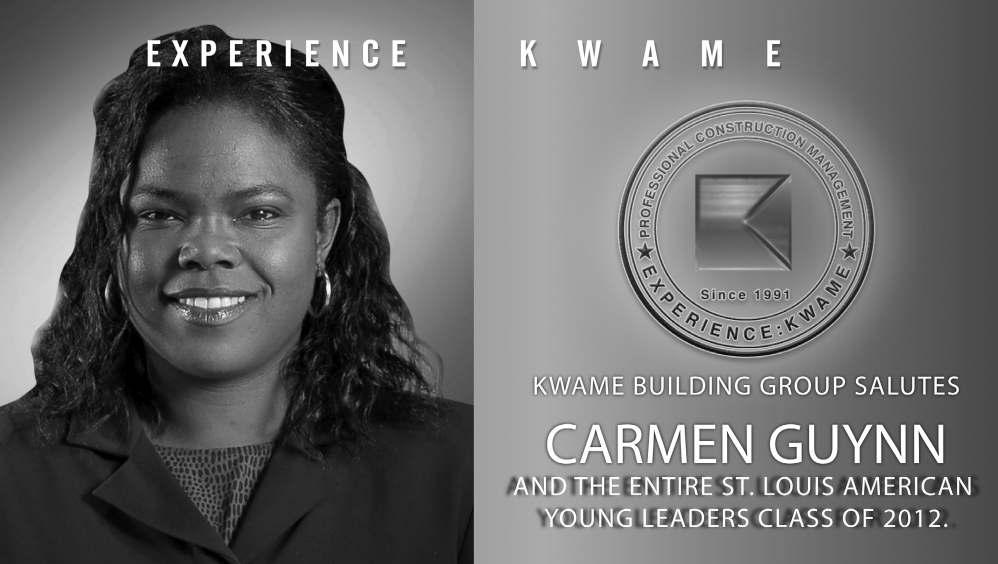
Broker/Owner
Real Estate Solutions
Born: Belleville,IL
Education: High School: Cahokia,IL
College & Degree(s): St.Louis Community College
Member of the following:
• RBC Young Professionals
• Urban League Young Professionals
• 100 Black Men of St.Louis
• National Sales Network
As a real estate broker, I help my clients achieve their real estate goals. In addition to representing buyers and sellers in real estate transactions, I manage a sales staff and oversee the daily operations of Real Estate Solutions.
What lead you to become an entrepreneur?
Since I was a kid, I’ve always leaned towards entrepreneurism. I would make paper wallets and sell them to my friends for a dime. I had my own grass cutting business as a young teenager. Once I entered the “official” workforce I was often frustrated that my employers wouldn’t listen to my ideas about provid-
ing more value while increasing revenue. I just decided that I could do it better on my own.
What advice would you give to a local African-American entrepreneur who wants to launch his/her own business? Find businesses that demonstrate the type of experience that you want to provide to your customers and take the owner out for lunch to ask questions. Look for people who have been successful in your field of interest and offer to be an unpaid intern for them in exchange for mentorship. Read books and articles related to a variety of businesses, not just the one that you want to create.

What’s unique about your company’s services?
I am in a position to help my clients with the largest financial transaction and investment that most of them will ever make. With that in mind, I strive to educate my clients so that they feel comfortable throughout the process.
Additionally, I provide a concierge service that ensures that they will never have to pick up a phone book and wonder if a service provider is competent. My clients know that I have their best interests in mind because in most cases they were referred to me by someone that they trust.
What’s the most satisfying part about owning your own business?
The most satisfying part of owning my business is that I am responsible for the success or failure of it. I am blessed to be in a position to help people. Connecting people with the knowledge that they need to become the best possible version of themselves is what I love. Afriend once told me that I grow people. Having a green thumb in humanity is what gives me the greatest sense of accomplishment.
(According to one of the people that nominated Nate, he does extensive work with 100 Black Men of St. Louis and other organizations, including organizing Health & Wellness, Financial Literacy, Legal Counseling, and Career Building workshops).
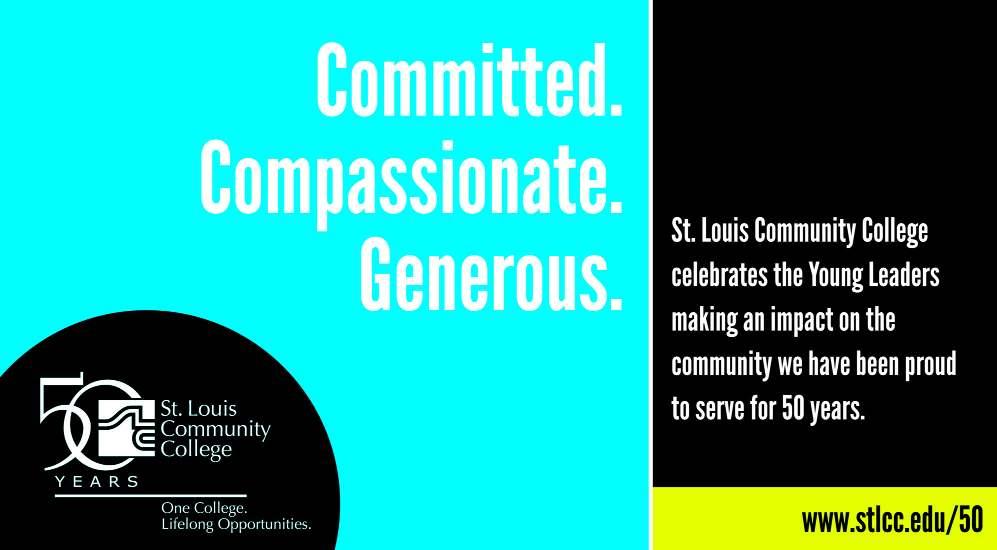
Born: St.Louis,MO
Education:
High School: Rosati-Kain
College & Degree(s):
Saint Louis University, BA in Communications
University of MissouriColumbia,MA in Journalism
Saint Louis University,Ph.D. in Public Policy (May 2015)
Member of the following:
• RBC Young Professionals
• United Way Young Professionals
• United Way Multicultural Leadership Society Cabinet
I develop content and various forms of communication to engage and inform employees about Monsanto and agriculture-related industries.My work ranges fromnews articles and blogs to video scripts and packages.I have also created communication strategies for some of Monsanto’s internal campaigns and awards programs.My job has even included driving a John Deere tractor and riding in a crop duster.

What are some of the successes you’ve seen regarding Monsanto’s Diversity Network?
Monsanto has nine diversity networks. The networks are a great opportunity to encourage individuals to celebrate similarities and differences.As the communication lead for Monsanto’s African Americans in Monsanto (AAIM) diversi-
ty network, I have seen and supported unique opportunities for individuals— who work in variouscapacitiesat Monsanto— to network, develop professionally, and celebrate similarinterests.Under my leadership, AAIM has created its first executive video promoting diversity, trained employees in the areas of writing, editing and communications, and executed its first community fundraiser INSPIRE.
How has technology enhanced your ability to perform your duties as Communications Manager? Technology has completely changed the way everyone communicates. When I arrived at Monsanto in 2007, my team was sending out information once a week via email. Now, we have an Intranet site that allows us to communicate news and information in real time to more than 20,000 employees globally. As a communications professional, this has enabled me to keep employees aware of the latest, most relevant information about our company and our industry to support their business needs 24/7.
When speaking at youth journalism workshops, how do you encourage
youths who want to go into your field, especially minority youth?
Speaking to youth is absolutely one of my favorite things to do.I believe it is important foryouthto see and have access to accomplished individuals who look like them and can relate to them. Our youth have so much passion and opportunity ahead of them.I try to use my diverse background as an example of what they can accomplish with a communications or a journalism degree. I try to convey to youth that the possibilities are endless when you know how to write, speak and communicate well.
What have you learned from the countless hours you’ve spent working with the United Way of Greater St. Louis? I provided communications support for Monsanto’s United Way campaign in 2008 and 2009, and it inspired me to get more involved and do something bigger. In 2010, along with a colleague, I created INSPIRE: AFusion of Fashion & Culture, an event that has raised more than $50,000 for the United Way of Greater St. Louis and drawn more than 1,000 individuals from the community. Working on INSPIRE, volunteering with GenNext and serving on the Multicultural Leadership Society Cabinet have allowed me to learn about the amazing services many agencies in Illinois and Missouri provide.

Born: East St.Louis,IL
Education: High School:
E.St.Louis Sr.High
College & Degree(s):
• University of Illinois at Urbana-Champaign,BS
• Webster U.,MA;Graduate Paralegal Certificate
Member of the following:
• RBC Young Professionals
• Urban League Young Professionals
• St.Louis Paralegal Assoc.
• Mound City Bar Association
• National Association of Legal Assistants
I specialize in the area of civil defense litigation, specifically insurance defense. I assist in gathering and organizing the information pertaining to medical, legal and factual research and investigations. I am responsible for developing and maintaining all of the information necessary for trial.
In your view, why aren’t more African Americans in the legal field in St. Louis?
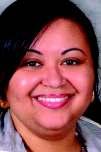
According to the US Census Bureau, African Americans account for 13% of the population. However, according to a study by researchers at Columbia University, law schools nationwide remain predominantly white and the number of Black enrollments has been stagnant over the past
15 years. Additionally, according to a recent article in Diversity Inc., once the lawyers enter the legal profession, they are disproportionately under-represented in private practice. Only 4% of lawyers are partners in private practice and only 9% are General Counsel. African Americans are underrepresented which decreases the number of mentors and role models that are available. African Americans routinely go into solo practice and are in smaller law firms.
As a paralegal, what changes would you like to see on the legal front?
Like most people, I believe changes to the legal system are warranted, but the bottom line is that people’s personal feelings and prejudices have always plagued the legal system. If we could move without making decisions based on what we see and how we see people, the world would be a much better place. I would love to see a day when the legal system truly protected the innocent and the law was not misused for financial gain.
What makes you smile when you
come into the office each day?
I smile before, during and after I arrive at the office because one, God saw fit to allow me to be here one more day. Second, every day is a new opportunity to do something great and learn something new. Third, every day I remember that only by His grace and mercy I have a job. The economy has hit many people and so many are looking for employment and I do not take mine for granted. What makes me smile is my inner joy.
You’ve recently started teaching as an adjunct instructor. Have you sensed a level of satisfaction in this area yet? Why?
I love education and I love giving back! Teaching allows me to do both. I am able to be a resource to others and help my students reach their potential. Additionally, I am able to grow intellectually as well as garner more communication and interpersonal skills. I get a sense of gratification from teaching. I can watch the student come into the program with almost a clean slate ready to just “soak up” what s/he can and then graduate with a “new knowledge” and hopefully a “better understanding” of the importance of law in our everyday lives.
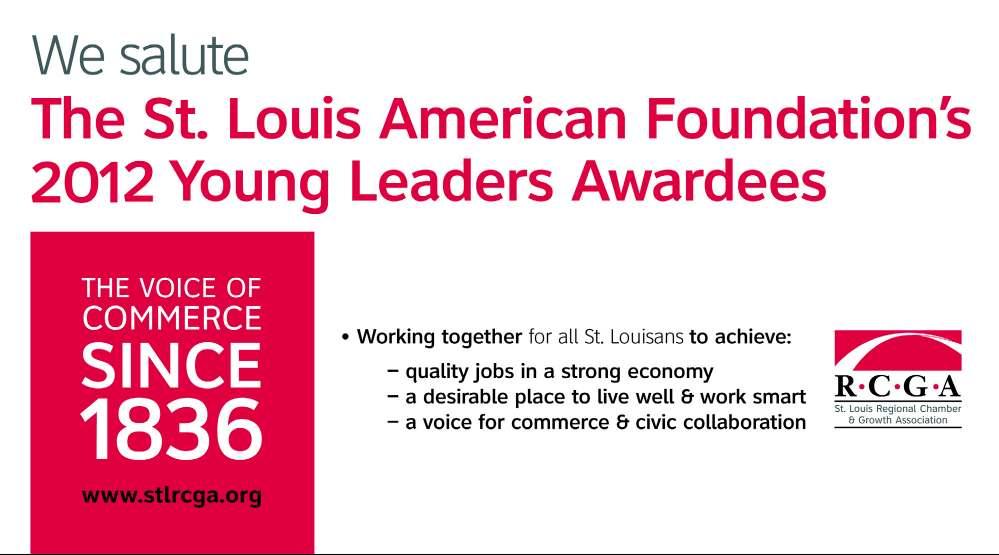
AstraZeneca
Born: St.Louis,MO
Education:
High School: St.Louis Public/Magnet Schools
College & Degree(s):
Southeast Missouri State U., BA,Business Administration Webster U.,Masters of Arts
Member of the following:
• Southeast Missouri State U.Board of Regents
• National Sales NetworkSt.Louis Chapter
• Delta Sigma Theta Sorority, Inc.St.Louis Metropolitan Alumnae Chapter
I am responsible for driving performance, market share growth and building brand awareness by:
Educating and training medical staff (NP, RN, PA, MD, DO and Residents) on agents that offer therapeutic benefits for both chronic and acute disease state management, in a variety of settings to include: teaching facilities, physician groups, county health systems and stand-alone physician practice locations
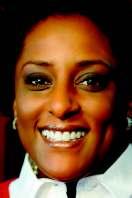
Implementation of planning models to assist in moving key customers along the adoption spectrum
Identifying and training of peer leaders and national speakers
Territory management of customer account data bases and annual budget management
You’ve received numerous awards and national recognition for your sales. To what do you attribute your success? I attribute my success to my embracing of the spirit of “Ubuntu”, a Bantu concept meaning “I am because we are” as a driving force behind my accomplishments in both my professional and community life. My supportive nature and impeccable work ethic allow me to consistently maximize my Top 5 Strengths (Learner, Achiever, Connector, Restorative and Activator)
Who/what instilled your strong sense of volunteerism in you?
The list of those who have influenced me is seemingly endless and spans generations Sojourner, DuBois, Lee, King, Tillman, Oseola McCarty, Stovall, Frankie Muse Freeman, Dyson, Angelou, Mandela, Tutu, Bennett, Ernie and many others have played a critical role in my internalization of my “Nia” purpose. Commonalities: character, integrity, selfless nature, pioneering, “greater good” visions, modeled success, hopefulness and relentless courage to simply do what is needed and right not only creates a
kinship amongst these extra-ordinary and exceptional leaders, but is the essence and fuel that allows me to simply attempt to emulate their efforts by committing myself to the development of others and the grassroots efforts leading to the creation of sustainable communities to create needed change.
Tell us about the “Backpack to Briefcase” Mentoring/Scholarship Program you created:
As Mentoring Chair for the St. Louis Chapter of the National Sales Network, I created the nationally recognized Backpack to Briefcase Mentoring and Scholarship Program, which supports students at local colleges and universities. Since 2009, this program has helped participants develop strong business acumen and solid professional networks. NSN St. Louis Chapter’s services have helped to jumpstart the professional careers of college students and shorten the learning curves experienced by many young professionals. The program has provided over $10,000 in scholarships/awards to students from the University of Missouri St. Louis, Washington University and Southern Illinois University at Edwardsville. Under my direction, the program has also created both corporate and private scholarship partnerships.

Born: Jackson,MS
Education:
High School: Murrah High School
College & Degree(s):
• Xavier University of Louisiana; BA,Political Science
• University of MissouriColumbia,MA and PhD, Political Science
• St.Louis University,JD
Member of the following:
• ACLU of Eastern Missouri
• Interfaith Legal Services for Immigrants
I teach political science and law. I am a tenured Associate Professor of Political Science at the University of MissouriSt.Louis, teaching Pre-Law and Race and Ethnic politics, also serving as the university’s pre-law advisor to students. I am also an Adjunct Assistant Professor of Law at St. Louis University school of law, teaching Immigration Law and Civil Rights of Immigrants. I am licensed to practice law in Missouri and the Eastern District of Missouri Federal Court.

What lead you to a career in the field of education?
I enjoy teaching because I feel that it provides an individual with a resource that empowers them and enhances their ability to lead a productive life.
For teachers, what are some of the
biggest challenges teaching students in 2012?
The culture of higher education and teaching is faced with the challenge of adapting to the nuisances unique to the culture of younger generations.
What makes you smile when you walk into the university each day?
The idea that someone may feel happier and smile after they leave my class that day.
What’s the most satisfying part about being a teacher?
Imparting knowledge so that it might empower a student and enhance their ability to lead a productive life.
One of your many areas of expertise is immigration law and civil rights of immigrants. To what degree has this area become increasingly public in the
state of Missouri?
The issue of immigrant rights and immigration law has become increasingly more public due to an increase in the number of certain ethnic groups migrating to the state of Missouri. Some observers argue that these persons are placing a strain on public resources while not adequately contributing to the system - while others feel that fundamental human rights command that government treat these persons humanely and respect their rights under the U.S. Constitution. Thus, there is a growing debate.
(Dr. Middleton volunteered for the Immigration Law Project of Legal Services of Eastern Missouri, during which time he assisted in drafting complaints to be filed in Federal District Court for the Eastern District of Missouri, drafted motions to be filed with the Executive Office of Immigration Review, conducted legal research on complex immigration matters and drafted continuing legal education materials on immigration law).
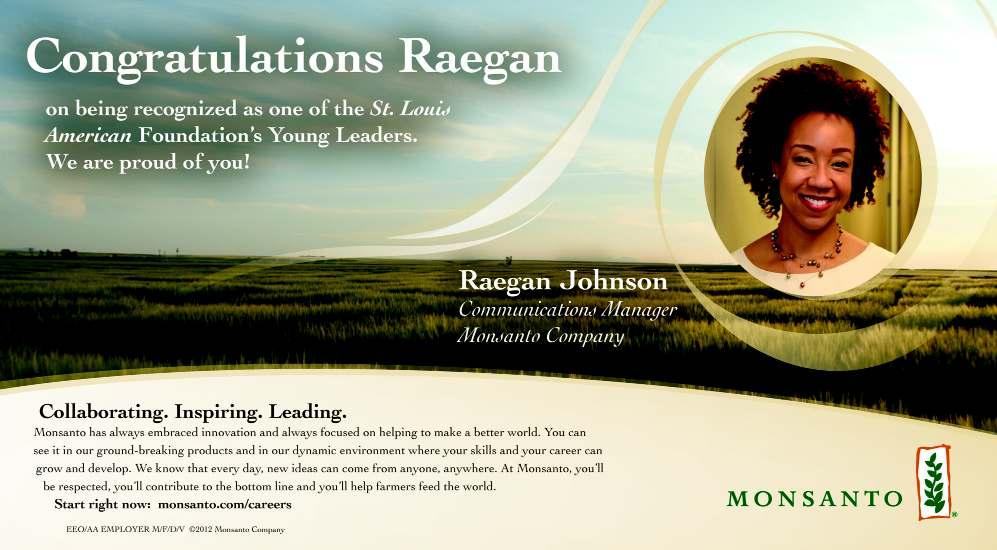
America SCORES St. Louis
Born:
St.Louis,MO
Education: High School: Rosati-Kain
College & Degree(s):
Xavier University of Louisiana ,BA,English University of Missouri
St.Louis ,MFA,Poetry
I partner with schools and families to help urban public school students improve their minds, bodies, and communities. I am responsible for fundraising, communications, evaluation, and organizational leadership for an organization that has served more than 2,000 children
in our region. I also volunteer with several coalitions and organizations focused on childhood obesity prevention and social justice issues. As a volunteer, I help to design and implement projects that serve disadvantaged communities.
How has your program grown since you founded it in 2005?
nearly $4 million since our inception to help children improve their literacy skills, lead healthy lives, and cultivate their leadership abilities.
What are some of the recent success stories of SCORES?
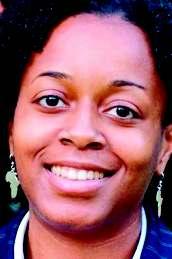
I started the program as a staff of one serving 20 children in one school, we now employ four full-time staff, 30 part-time staff, and manage a volunteer corps of 35 individuals who believe in our mission. We serve two school districts, St. Louis Public and Normandy School District, and have plans to expand to a third district within the next two years. Our annual operating budget has grown from a seed investment of $25,000 to a quarter of a million dollars. We have raised and invested
Our greatest success stories are the outcomes our students achieve after participating in our program. Seven out of 10 children who begin our program overweight achieve a healthy weight within one year due to our soccer and nutrition education component. Our students outperform their peers academically with twice as many SCORES students scoring proficient in Communication Arts and Science on MAP tests than non-SCORES students in the same schools.
Urban education has its challenges. How have you been able to collaborate with educators, community leaders and administrators?
Our organizational values are teamwork, leadership, and commitment and we model that in how we do our work. We collaborate with youth development, arts, and obesity prevention organizations in all aspects of our program delivery
from our annual poetry slam to the professional development sessions we conduct for teachers. We are joint partners with the Normandy School District for their 21st Century Community Learning Center program and manage a team of 11 community partners to provide youth development programs for the entire school district.
Tell us about the “2” Guinness World Records America SCORES St. Louis recently helped set?
In September 2011, we partnered with Saint Louis University to host St. Louis’first ever Guinness World Record attempt for the most people dribbling a soccer ball at once. It was a fun way to raise awareness about our organization. Our goal was to draw 250 participants to set the record and we had 437 people show up. In October 2011, we partnered with Becky Sauerbrunn from the U.S. National Soccer Team to participate in First Lady Michelle Obama’s world record attempt for most people doing jumping jacks in a 24-hour period. We organized our students at Barack Obama Elementary to help the First Lady set the record. It was a good tie in to our fitness focused mission and the children enjoyed being a part of history with First Lady Obama.
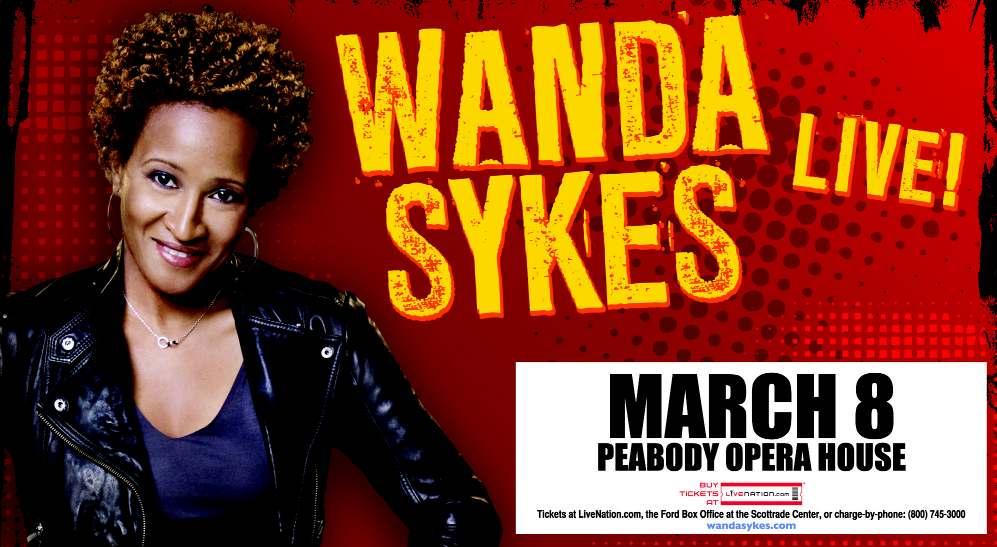
YMCAof Southwest Illinois
Born: Saginaw,MI
Education:
College & Degree(s):
• Morris Brown College, BA,Communications
• Georgia State University, Graduate Certificate (Non-Profit Management)
• University of West Georgia, Masters Public Administration
Member of the following:
• Urban League Young Professionals
As Director of Community Services & Government Affairs I am responsible for management and administration of all aspects of community services to our underserved communities. These programs include youth development, mentoring, afterschool programming, college readiness, youth sports and a host of other programs and services. I also serve as the principle public policy advocate and assist in setting legislative priorities in concert with the state-wide and national YMCAmovement.
nity?
I am who I am today because the community invested in me. From church leaders, school principals & teachers, community groups and family in Saginaw, MI, I was shaped and molded into the person I am today. I can identify with the plight that many of our youth face because I was once them. I know that genuine care and commitment can change an entire community.

You’ve been in the region for less than five years, yet you’ve wasted no time in getting involved. Who/what instilled in you such a commitment to the commu-
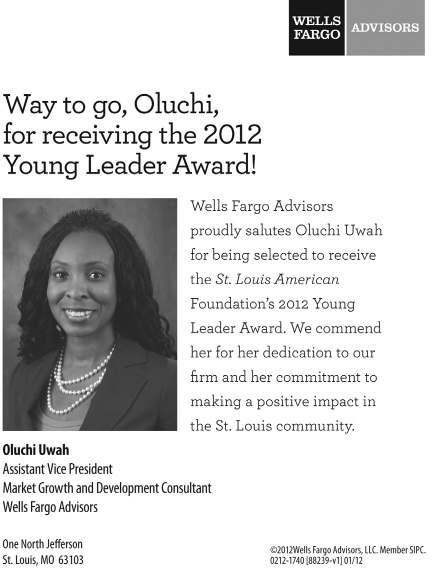
yourself and to have a great time.
In your words, “Community service is the price we pay for living on this earth.” Can you please expand on this for our readers?
Having worked in Atlanta, what would you say to other young AfricanAmerican professionals in a major city about working and living in St. Louis?
St. Louis has been really good to me. Missouri is the “Show me State” for a reason. Since relocating here over three years ago I’ve meet some really awesome people who all have one thing in common: they make you prove you are who you say you are. This is a great thing in this day and time. There is so much to do: live, play and work in St. Louis. If you plan on relocating to St. Louis expect to prove
Just being born, one has been afforded many blessings and opportunities in spite of all the obstacles you may face during your transition. I truly believe when you work to improve the lives of the people with less, (and it’s not resources all the time) you are truly giving to God. You can never pay itforward enough to erase the debt of the space we take up while we are here but I think we should all die trying.
Why is mentorship so important for our region?
Our youth need positive people to look up to and people to show them that they care. At a time when our youth idolize and mimic the images they see on television, we should be counteracting those images with the positive reinforcement that we have picked up along the way. I think mentorship and the positive reinforcement of values and norms will allow our youth to fight through what society predicts and what statics show.

U.S. Bank
Born: St.Louis,MO
Education:
High School: University City High School
College & Degree(s):
• Washington University, BA,French
• Saint Louis University, Executive MBA
Member of the following:
• RBC Young Professionals
• United Way Young Professionals
• Urban League Guild
• National Black MBA Association
My role is to help create and implement a strategic framework in which U.S. Bank ensures that it is meeting the charge of our brand, “All of US serving you”, by identifying opportunities to provide products and services to strategic market segments, including: ethnic segmentation, lifecycle (youth & senior), gender (women) and lifestyle (LGBT). The goal is to help create stronger, sustainable communities and build deeper relationships by empowering individuals with the necessary tools to become financially stable and prosperous.
commercial department of a major fashion house. With my multilingual skills (French, Spanish, English), I had the amazing opportunity of being involved in several high-level business transactions –including working with the store development teams to open boutiques, as well as assisting global clients (retailers/buyers) with their orders.

You began your experience in international business in Paris, France. How did that prepare you for success at corporations such as CPI, Home Depot and USBank?
In Paris, I worked in the international
How has your role at USBank changed throughout the years?
When I started at U.S. Bank, I was a part of the International Banking Group. Having had international business experience, I was able to serve as a trusted advisor for companies who were starting to expand internationally – providing insights on risk mitigation strategies, treasury management and strategic planning. Through internal networking, I got involved with our local Multicultural committee – which operates under the umbrella of our Community Affairs division. Now, I am able to utilize my full professional ‘toolbox’– drawing on my multicultural sensitivity, strategy and business development, project management and team leadership – to influence and lead teams across our 25-state footprint.
You’ve been very integral in the recent success of the St. Louis chapter of the Black MBAs. Why are professional organizations like the Black MBAs important for our region?
Professional organizations, like the Black MBAs, are key to fostering and promoting leaders from all sectors of our community. In a city like St. Louis, relationships are essential to personal and professional growth. Having access to professional organizations that represent people that share your background, interests and experiences provides a means of mobility and community engagement that may otherwise not be available in one’s workplace.
What advice would you give to an upcoming young African-American professional who is leaning towards another major metropolitan city vs. St. Louis?
St. Louis is a community that values service, philanthropy and professional development, while being manageable enough in size for you to get connected. As a young African-American professional, you are a ‘hot commodity’as increasing focus on diversity and inclusion – particularly within the business community as leadership is aging out – is opening greater opportunity for professional advancement and enhancement to young, minority professionals that are prepared to step up to the next level.
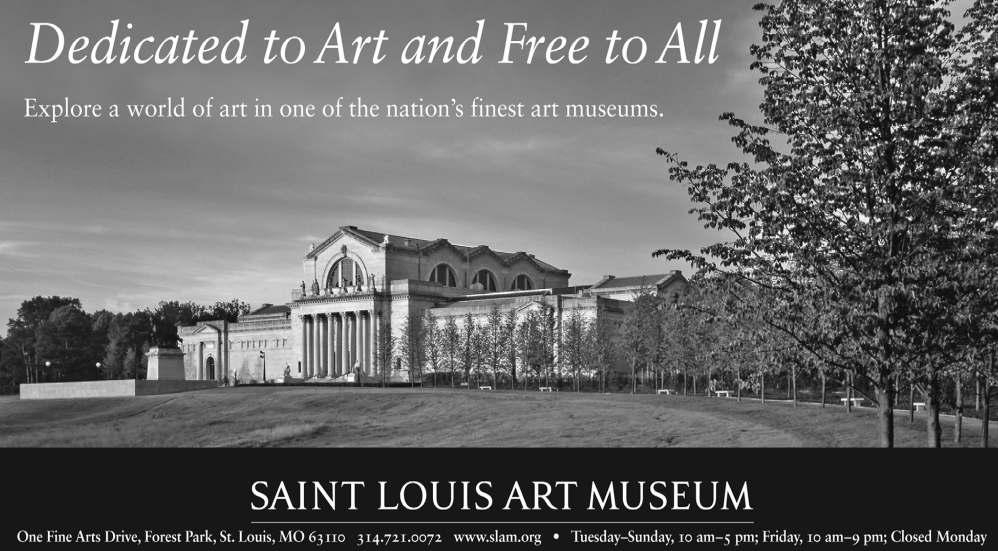
Field Perspective Consultant, Assistant Vice President,
Business Development Group
Wells Fargo Advisors
Born: Athens,GA
Education:
High School: Academic Magnet High School – North Charleston,SC
College & Degree(s): Florida A&M University ,BS, Business Administration; MBA,Marketing
Member of the following:
• St.Louis Chapter of the Florida A&M University Alumni Association
As a Field Perspective Consultant, my team is responsible for high-impact internal communications that go out to the field – or our Financial Advisors and support team in the Wells Fargo Advisors (WFA) branches. In addition to creating and executing communication plans that are associated with each highimpact project, I am responsible for project planning, web content and design, writing, promoting, and understanding the downstream impact of the communication on our Financial Advisors. Writing executive communications for Senior Leaders at WFAis another part of my role.
Edwards. Were you scared about the move?
Oh yes – I was very scared. There is always fear of the unknown. I didn’t have any friends or family members that lived in St. Louis. But what scared me more was being unemployed during that difficult time in our nation’s history. I saw an opportunity and I was grateful for it – even though it meant being nearly 900 miles away from home, I couldn’t pass it up. I think it was one of the best decisions I could’ve made. …not only professionally, but also for me personally. St. Louis has truly embraced me and I feel that I have thrived.

You have been recognized as a Champion of Diversity at Wells Fargo Advisors. In what ways have you tried to personally promote diversity among the team at Wells Fargo?
most impact in diversity. I was the Communications Chair for our Women’s Team Member Network and one of the first events I organized was called “This April Fool’s Day – Don’t Play the Fool”. It was a panel of women with experience in identify theft, relationships, recruiting, and banking and lending services. I also helped put together the very first Woman of the Year Awards to recognize the great work our female colleagues are doing professionally, personally, and in the community.
You’ve volunteered many hours, serve as a Big Brothers Big Sisters mentor, and are a true advocate of HBCUs. What brings you the most personal satisfaction?
During the 2008 financial crisis, you made a bold move to relocate to St. Louis after Wachovia acquired AG
Missouri State University
Born: St.Louis,MO
Education:
High School: Parkway North
College & Degree(s):
• Missouri State University, BS,Marketing/Sales Management
Member of the following:
-RBC Young Professionals
-Urban League Young Professionals (pending)
-National Black MBA Association,Inc.
-National Sales Network
-Council for Advancement and Support of Education (CASE)
As Director of Development and Alumni Relations, I cultivate strategic relationships with MSU alumni, potential students, university friends, corporate partners, and political and civic leaders, in order to encourage donor investment and stewardship. In doing this, I help tomorrow’s young leaders further their education. My primary responsibilities include fundraising to advance the mission, goals and longrange plans of MSU and to also make our university the college of choice for potential students. I strive to encourage MSU alumni to stay engaged or become re-engaged with the university by participating in various activities in St. Louis, Springfield and Chicago. In addition, I also work to assist our alumni and recent graduates to secure professional opportunities to put their degrees to good use.
One of the reasons I love working at Wells Fargo is because diversity is a core part of the company’s Vision and Values. Our CEO’s top initiative this year is the continued focus on diversity. We have a Diversity Council and affinity groups known as Team Member Networks. It was in this area that I believe I made the
Even when I am giving back, I feel like I am also taking something back for myself because helping others and connecting people is what I love to do. I love volunteering, I love being a mentor. But what truly brings me the most personal satisfaction is hearing thank you. It’s two very simple words, but it means the world to me – it means that what I did wasn’t done in vain….that what I did was appreciated….and that I made some type of impact or difference in someone else’s day.
What are some of the challenges in recruiting African-American students from St. Louis to attend Missouri State University?
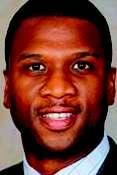
One of the challenges I have encountered is familiarizing potential students with Missouri State University, because many of them or their parents are more familiar with our former name of Southwest Missouri State University (SMS). Once they are acquainted with our new moniker, the next challenge becomes connecting with high school counselors and administrators so that they are familiar with this change also. An additional challenge is placing resources and proper guidance in the hands of potential first generation college students, as well as a plan in which to complete college applications and scholarships prior to their deadlines.
After working in Chicago, you returned to St. Louis and immediately joined several local African-American professional organizations. Why?
I joined several professional organizations for numerous reasons. One was to
connect with like-minded people who wanted to make a difference in the community and their professional lives. I also wanted to enhance my professional development and continue to hone my skills in business acumen. I had a strong desire to enlarge my overall network and really connect with quality people, not just pass out business cards and consider that networking. These organizations also provided a platform to participate in quality community service projects and youth leadership groups, which are dear to my heart.
As a young African-American professional, what do you feel are St. Louis’ biggest attributes regarding attracting and retaining African-American professionals?
I believe one of the biggest attributes to attract this group is to offer quality careers with upward mobility, leadership potential and to hone their skills through various professional development opportunities. After they are employed in St. Louis, we must keep them engaged through our quality young professional and political organizations to help them connect with other like-minded leaders. It is also vital to expose them to the arts, culture, entertainment and politics which make up an enjoyable social life.
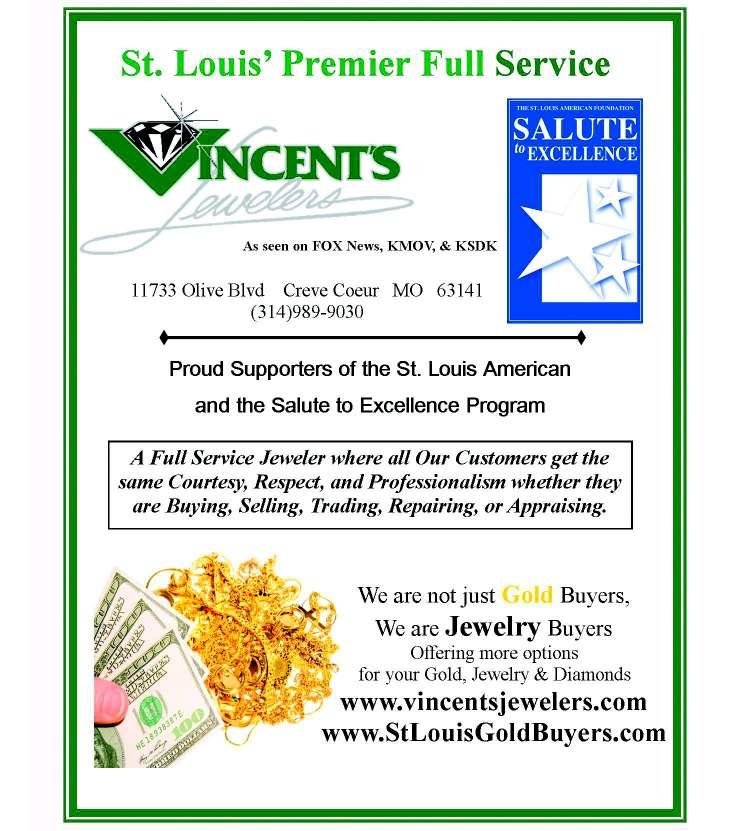
Born: St.Louis,MO
Education: High School: Hazelwood East
College & Degree(s):
Hampton University,BS, Business & Marketing
Saint Louis University School of Law,Juris Doctor
Member of the following:
• RBC Young Professionals Network Steering Committee
• United Way African American Leadership
• The National Bar Assoc. Board of Governors
• The Bar Association of Metropolitan St.Louis Board of Governors
I am responsible for crafting, executing and ensuring coordination for the company’s overall global procurement strategy. I direct and develop the company’s legal sourcing and procurement activities as it relates to anything the company buys or leases. This includes software, equipment, professional services and even event space as examples. My dayto-day activities include structuring, drafting, reviewing and negotiating complex information technology and telecommunications-based agreements on behalf of Savvis. I also provide front line legal support to our domestic and international sales organizations, and may be called upon to provide advice to internal business unit clients concerning commercial legal issues.
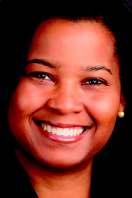
women at your level in your field is quite low. What advice would you give to African-American women in college who are interested in corporate law? I would say identify as early as possible that this is what you would like to do and then reach out to people in the field who are doing what you want to do. Most people are very willing to help you when possible. Many corporations offer internships and scholarships at the college level, seek these out and once you are there, reach out to the legal department and maintain those contacts throughout law school. While in school take courses the focus in the area of corporate law and seek out corporate internships and externships.
in the corporate environment. It also allowed non-minority co-workers an opportunity to better understand, not only the cultural differences that may exist, but also how those differences and experiences may affect their minority coworkers in their day-to-day work life.
What can you tell us about the pipeline program you created to develop African-American high school students interested in a legal career?
The percentage of African-American

What lead you to become a founding member of Savvis’Multicultural Awareness Resource Team (SMART)? I believe in today’s techsavvy workplace, face-to-face interaction is minimalized. Additionally, I believe, as in most corporations, people of color represent a small minority of the workforce. I think face-to-face interaction with coworkers whom you may share similar experiences with, both inside and outside the workplace, is helpful and supportive
The Mound City Bar Association’s (MCBA) pipeline program, now in its 4th year, was an idea I implemented when I was MCBAPresident in 2009. There is a definite disparity between the population of African Americans and the number of African-American lawyers in the United States. I was really fortunate to have Shelby Watson (a 2011 Young Leader awardee) to take charge and develop the program. What she did was far beyond what I ever imagined. Shelby is still running the program today, which services students at Northwest Academy of Law and Soldan International Studies High Schools. The program includes workshops covering subjects such as interviewing, writing and college applications, a speaker-series, a law day with a tour of local law schools and law firms, and an etiquette workshop and banquet to close out the year.

